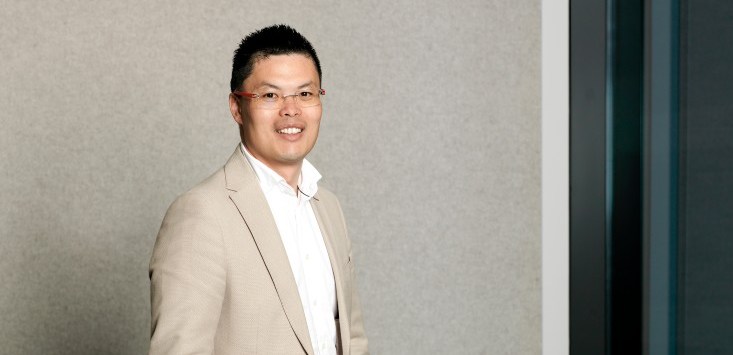
mx51 chief executive Victor Zheng. Source: supplied
This week we saw e-commerce platform Little Birdie backed to the tune of $30 million with funding from CBA, and heard from Collabosaurus founder Jessica Ruhfus, who hasn’t raised a cent, but has bootstrapped her way to profitability.
But there has also been more funding activity for Aussie startups, including in both the medtech and fintech sectors, as well as a successful equity crowdfunding campaign for a business digitising property management.
Plus, we take a look at a shiny new unicorn in the US solar energy space.
Here’s some of the funding news you might have missed.
mx51
Fintech mx51 has secured a massive $25 million Series A round.
Spun out of fintech Assembly Payments in May last year, and launched in partnership with Westpac, mx51 provides a white-label, bank-grade, secure payments platform, designed to compete with the likes of Stripe, Tyro and Square.
To date, the startup has facilitated $1 billion in transactions. Within the next 12 months, that’s expected to increase ten-fold.
The round was led by Acorn Capital, Artesian, Commencer Capital and Mastercard, and represents the startup’s first major capital injection.
“The size of our first ever round speaks for itself in terms of how bullish we are about rapidly rolling out our platform across Australia,” mx51 chief executive Victor Zheng said in a statement.
Artrya
Perth-based medtech Artrya has secured $15 million to develop and commercialise its AI imaging software for detecting the early signs of heart disease.
The technology analyses images from cardiac CT scans and produces a 3D image that can highlight the presence of vulnerable plaque, which can be a cause of heart attacks.
“Vulnerable plaque is made up of three different biomarkers and to detect each one is manually intensive,” co-founder John Konstantopoulos said in an interview with the Australian Financial Review.
“AI is good at going to the sub-pixel level and detecting each biomarker,” he added.
“We’re moving into pilots in Australia currently and then into commercial usage,” co-founder John Barrington added.
Soon, they will be applying for international regulatory approvals, with the intention of breaking into international markets next year.
The startup has attracted funding from Alex Waislitz’s Thorney, Watermark Funds Management, Washington H. Soul Pattinson, Regal Funds Management and SG Hiscock, the AFR reports.
Instarent
Self-management property app Instarent has raised just over $209,000 in a Birchal equity crowdfunding campaign, smashing its minimum target of $150,000.
With 15 days of the campaign still to go, the startup is creeping towards its maximum target of $1 million.
Headed up by co-founders AJ Chand, Aron Akca and George Kuberlis, the tool allows landlords to manage digital documents, keep track of accounts, advertisements and inspections, book in repairs and give notices. It can also be used to facilitate communication with tenants.
It also allows for paperless EOFY reports and tenancy renewal agreements, while keeping everything secure and confidential.
The successful raise comes in the same week as Birchal announced it has ticked over the $50 million milestone in funds raised for startups. Since launching in December 2018, the platform has now seen more than 75 campaigns successfully completed.
Aurora Solar
In international news, US solar software startup Aurora Solar has raised a massive $250 million Series C round, following on from its $50 million Series B back in November.
According to an article in Forbes, the funding brings the startup’s valuation to about $2 billion.
Founded by Sam Adeyemo and Chris Hopper when they were fresh out of Stanford University, Aurora is designed to streamline the planning and sales process for solar panel products.
It uses tech such as photovoltaic system design, lidar shade analysis and AI-assisted 3D modeling to assess the system costs and benefits before giving the customer a quote.
The funding the startup has attracted is indicative of the scale of the problem and the demand for tech to address it, Adeyemo said in an interview with Forbes.
“Whenever there are major problems, there is opportunity for investors to find good solutions to those problems,” he said.
“And that’s really what this really large Series C is.”
Handpicked for you

Bootstrapped startup Collabosaurus launches brand collab app, after a surprise COVID-19 growth period



COMMENTS
SmartCompany is committed to hosting lively discussions. Help us keep the conversation useful, interesting and welcoming. We aim to publish comments quickly in the interest of promoting robust conversation, but we’re a small team and we deploy filters to protect against legal risk. Occasionally your comment may be held up while it is being reviewed, but we’re working as fast as we can to keep the conversation rolling.
The SmartCompany comment section is members-only content. Please subscribe to leave a comment.
The SmartCompany comment section is members-only content. Please login to leave a comment.